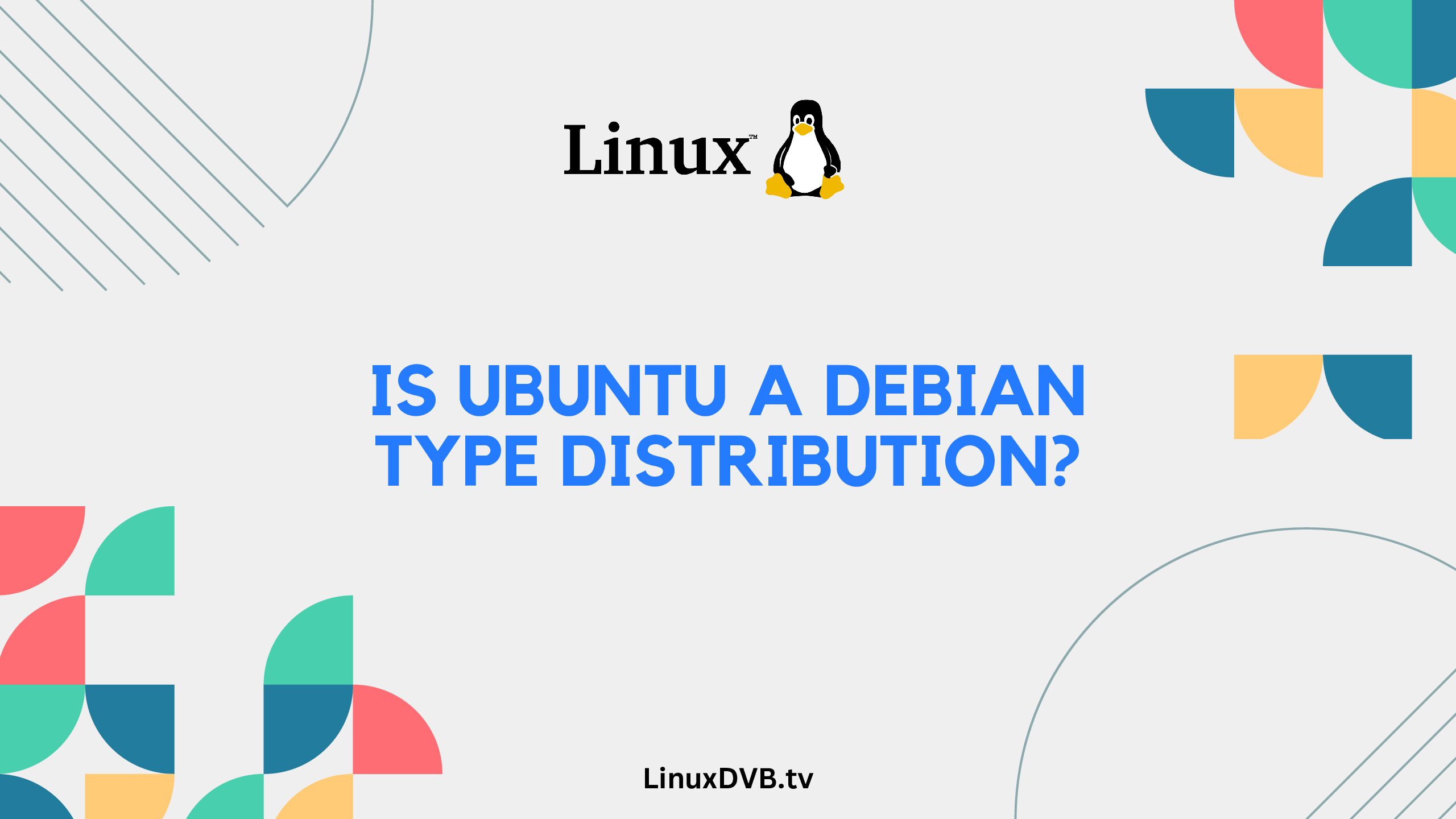Introduction
When it comes to the world of Linux distributions, Ubuntu and Debian are two prominent names that often emerge in discussions. Both are known for their stability, user-friendliness, and robustness. The question that often arises is: Is Ubuntu a Debian type distribution? In this comprehensive article, we will delve into the intricate relationship between Ubuntu and Debian, exploring their commonalities, differences, and the significance of their connection.
Table of Contents
Is Ubuntu a Debian Type Distribution? Unveiling the Connection
Ubuntu and Debian indeed share a significant connection. Ubuntu is, in fact, based on Debian, which makes it a Debian type distribution. This relationship lays the foundation for Ubuntu’s existence and its underlying structure.
Ubuntu’s Foundation in Debian
Ubuntu, since its inception in 2004, has been built upon the solid groundwork that Debian laid. Debian, a free and open-source operating system, is known for its focus on stability and adherence to the principles of the Free Software Movement. Ubuntu took Debian’s core principles and built upon them, aiming to create a user-friendly and accessible Linux distribution.
Shared Package Management System
One of the key elements that establish the connection between Ubuntu and Debian is their shared package management system. Both distributions utilize the Debian package management tools, including the Advanced Package Tool (APT), for software installation, updates, and removal. This commonality ensures a consistent and efficient approach to managing software across both distributions.
Divergence in Release Cycles
While Ubuntu and Debian share a strong connection, they do exhibit differences in their release cycles. Debian follows a “Stable,” “Testing,” and “Unstable” release cycle, emphasizing stability and rigorous testing. In contrast, Ubuntu releases on a regular six-month cycle, providing users with more frequent updates and access to newer software.
Exploring the Similarities and Differences
The relationship between Ubuntu and Debian goes beyond their foundational connection. Let’s explore some of the similarities and differences that define these two distributions.
Similarities
- Package Repositories: Both Ubuntu and Debian offer extensive software repositories, providing users with a wide range of applications that can be easily installed using package management tools.
- Community-driven Development: Both distributions thrive on community involvement. Debian and Ubuntu communities contribute to development, testing, and support, fostering a collaborative environment.
- Customizability: Ubuntu and Debian allow users to customize their desktop environments, enabling them to tailor their systems according to their preferences.
Differences
- Ease of Use: Ubuntu is often considered more user-friendly, with its focus on providing a polished and intuitive user experience. Debian, while user-friendly, may require more technical knowledge during the installation and configuration process.
- Software Releases: Due to Ubuntu’s more frequent release cycle, it tends to offer more up-to-date software compared to Debian’s more stable but potentially older software versions.
- Default Packages: Ubuntu and Debian come with different sets of default packages and desktop environments. Ubuntu’s variants like Ubuntu Desktop, Ubuntu Server, and Ubuntu flavors cater to various user needs.
Addressing Frequently Asked Questions
Is Ubuntu a Debian Fork?
No, Ubuntu is not a fork of Debian. It is built upon Debian’s core components and repositories but adds its own unique features, customizations, and release cycle.
Can I Install Debian Packages on Ubuntu?
In most cases, yes. Since Ubuntu is based on Debian, it is generally possible to install Debian packages on Ubuntu. However, compatibility issues might arise due to differences in libraries and dependencies.
Which Is More Stable: Ubuntu or Debian?
Debian is often considered more stable due to its rigorous testing and stable release cycle. However, Ubuntu’s LTS (Long Term Support) versions also offer a high level of stability for long-term usage.
Is Ubuntu Suitable for Servers?
Yes, Ubuntu is suitable for servers. Ubuntu Server editions are designed to offer a robust and secure platform for various server applications.
How Does Ubuntu Contribute Back to Debian?
Ubuntu contributes to Debian through code, bug reports, and collaboration with Debian developers. It aims to ensure a healthy and reciprocal relationship between the two distributions.
Can I Switch from Debian to Ubuntu Easily?
Switching from Debian to Ubuntu can be relatively straightforward, especially for users familiar with Linux. However, it’s essential to back up important data and configurations before attempting a switch.
Which is better: Debian or Ubuntu?
Both Debian and Ubuntu have their strengths; the choice depends on your preferences and requirements.
Is Ubuntu a Debian type distribution?
Yes, Ubuntu is based on Debian and inherits many of its characteristics.
Is Debian the same as Ubuntu?
No, while Ubuntu is derived from Debian and shares similarities, they have distinct features and development processes.
What is the difference between Linux and Debian?
Linux is the kernel, the core part of an operating system, whereas Debian is a complete operating system that uses the Linux kernel.
Why use Debian instead of Ubuntu?
Debian offers a more conservative and stable approach, suitable for servers and advanced users, while Ubuntu often focuses on user-friendliness and the latest features.
How is Debian different from Linux?
Debian is a Linux distribution, meaning it includes the Linux kernel along with various software packages, while Linux specifically refers to the kernel itself.
Conclusion
In conclusion, the answer to the question “Is Ubuntu a Debian type distribution?” is a resounding yes. Ubuntu’s foundation in Debian, shared package management system, and historical ties highlight the strong connection between these two distributions. While they share similarities, their differences in release cycles and user experience distinguish them. Whether you opt for the stability of Debian or the user-friendliness of Ubuntu, both distributions offer powerful options within the Linux ecosystem.

